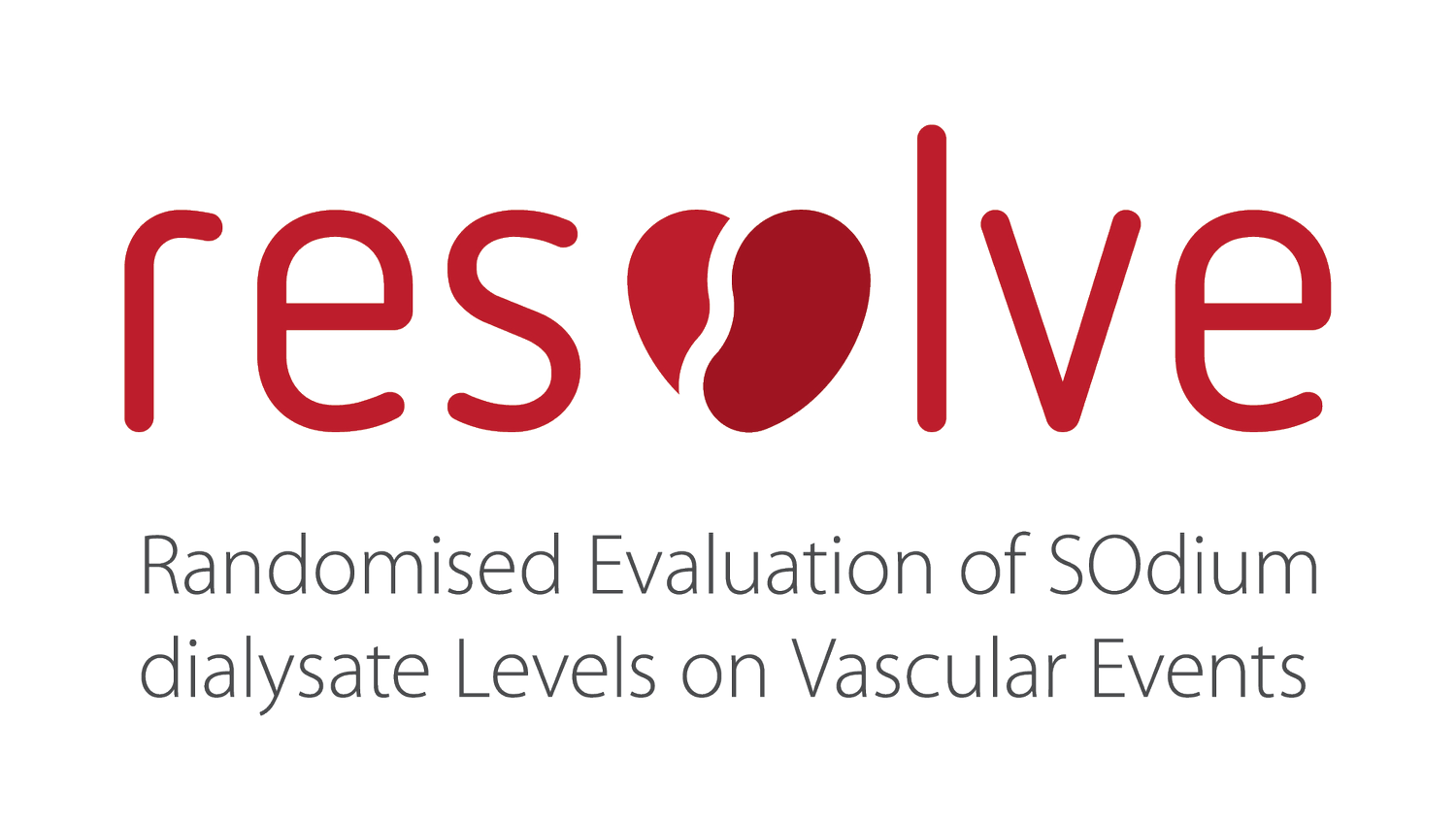About RESOLVE
In the UK 8000 people a year suffer permanent kidney failure and start dialysis. Life can be sustained for those with kidney failure through Kidney Replacement Therapy (dialysis or kidney transplantation). Unfortunately, people with kidney failure receiving dialysis have shortened life expectancy. The most common form of dialysis, haemodialysis, cleans the blood and removes excess water, but must be performed three times a week. It is a difficult and unpleasant treatment, with many patients continuing to suffer from excess fluid build-up, swelling, shortness of breath and fatigue. In addition, build-up of salt (sodium) may contribute to the high rates of heart attacks, strokes, and heart failure in patients receiving long-term dialysis.
Currently, most dialysis centres set the dialysate sodium (the amount of salt in the fluid that washes the blood) between 135mmol/l and 140mmol/l and all patients in a given centre will have the same (default) dialysis sodium set on their machines for each session. Small studies suggest that sodium levels closer to lower end of this range may increase the removal of excess salt from the body and reduce fluid build-up, which in turn may reduce the risks of heart disease and strokes. However, the same studies also suggest that levels closer to the upper end of the range may make the dialysis procedure more stable and lower the chance of blood pressure dropping during the dialysis session. The RESOLVE study will determine if a lower or higher dialysate sodium setting is preferable in terms of improving heart health and life expectancy.
The RESOLVE study will randomly allocate 100 dialysis units across the UK to use either a dialysate sodium of 137mmol/l or a dialysate sodium of 140mmol/l for approximately 3 years. Using information collected by the NHS and the UK Renal Registry, the number of people at each centre suffering a heart attack, stroke, heart failure, hospitalisation and death will be tracked to determine what is the best sodium setting to use to benefit the greatest number of patients.
UK dialysis units are participating in RESOLVE and, by default, routine data on all patients in the unit will be collected by the UK Renal Registry and NHS Digital for the purposes of this study. This information will be enterd into a secure database. Fully anonymised data will be shred wuth the University of Sydney to be compared with other countries as part of a larger analysis.



